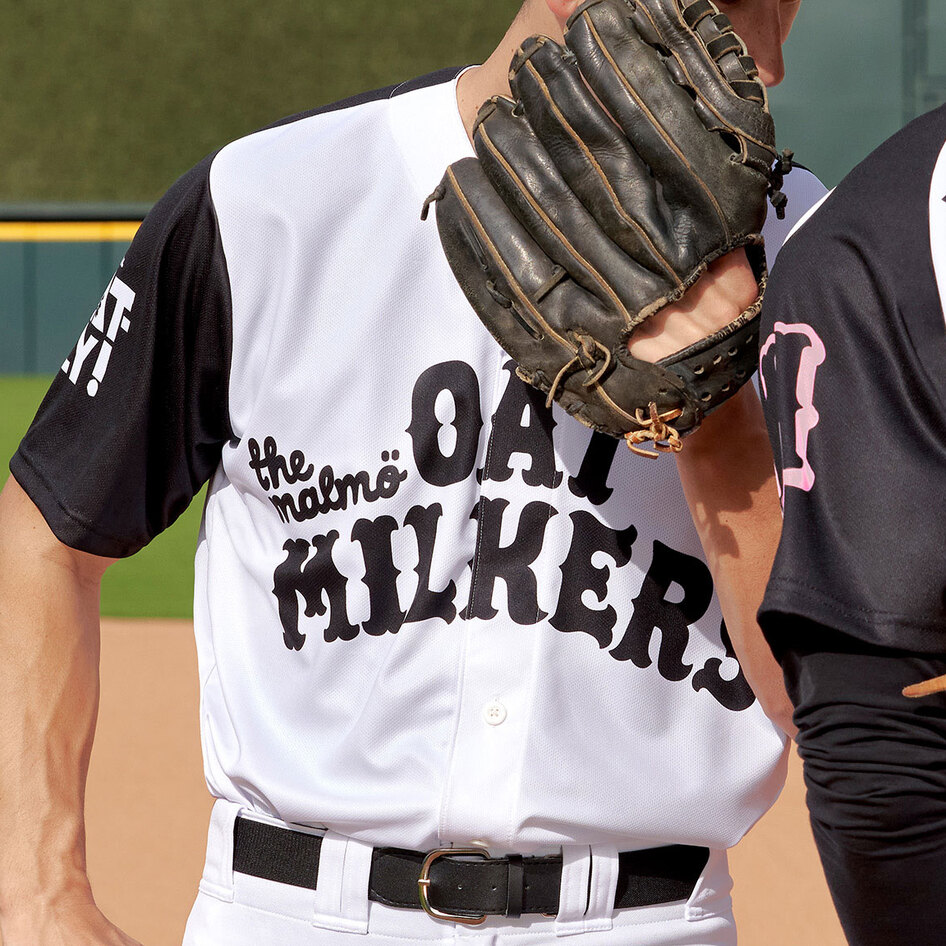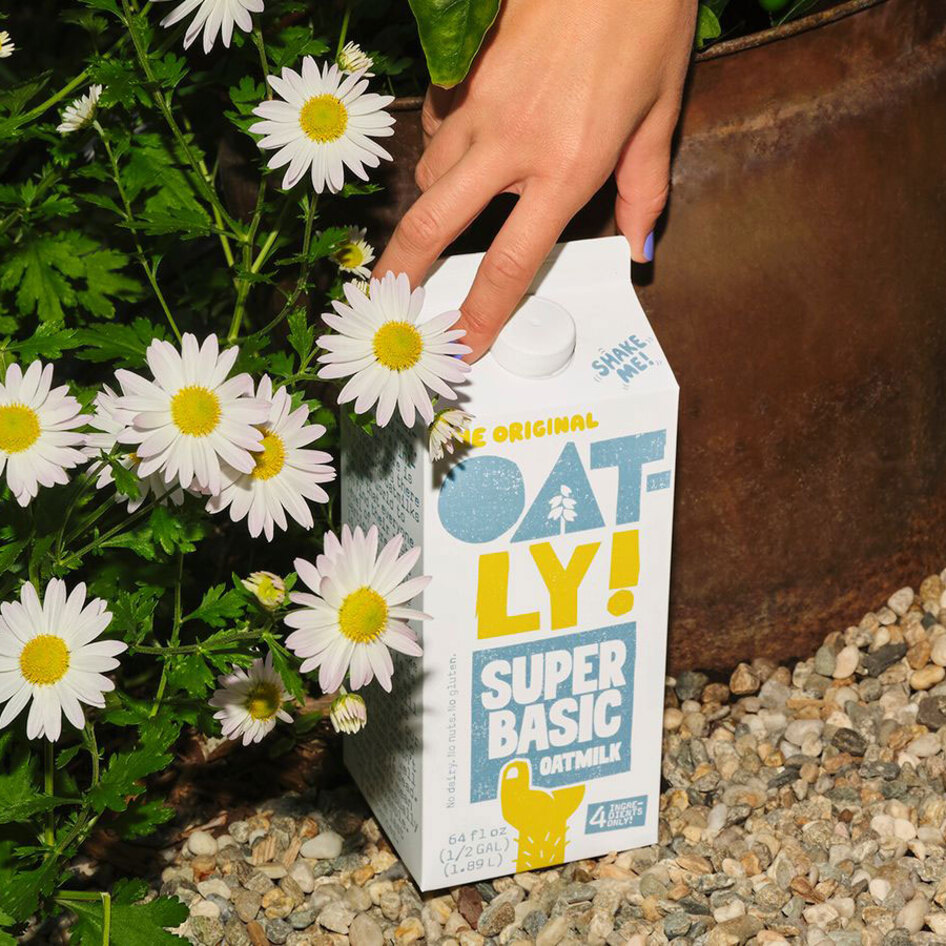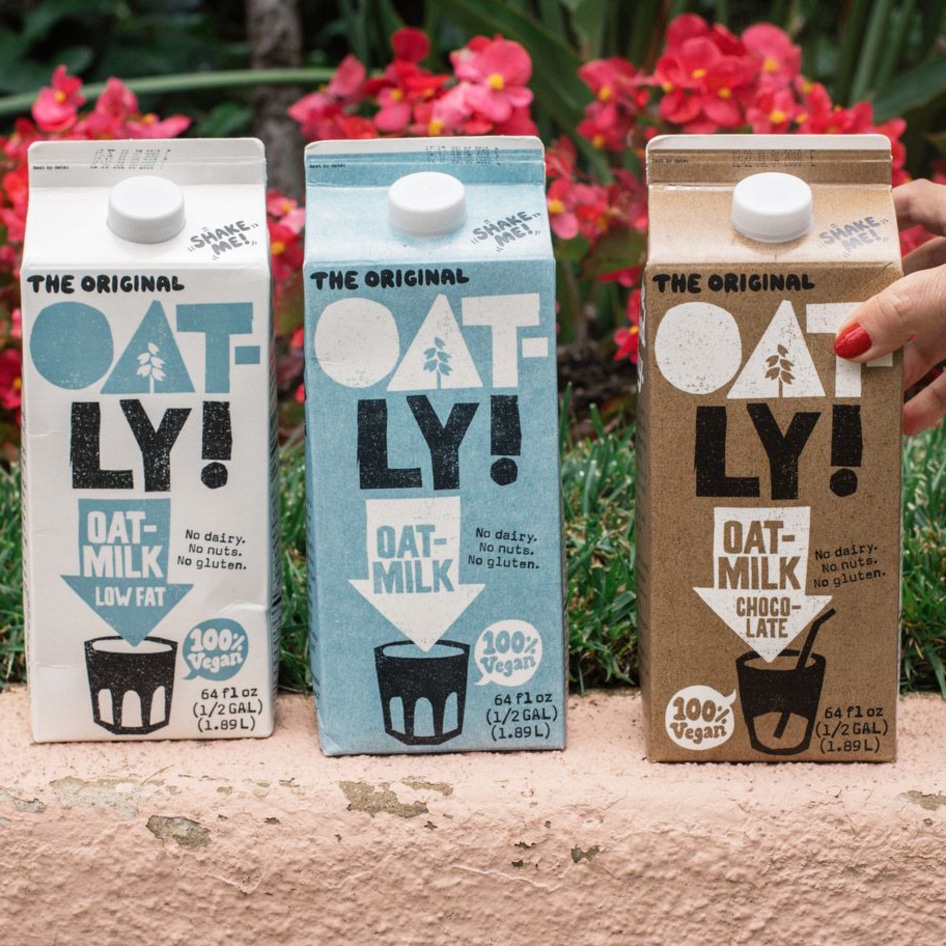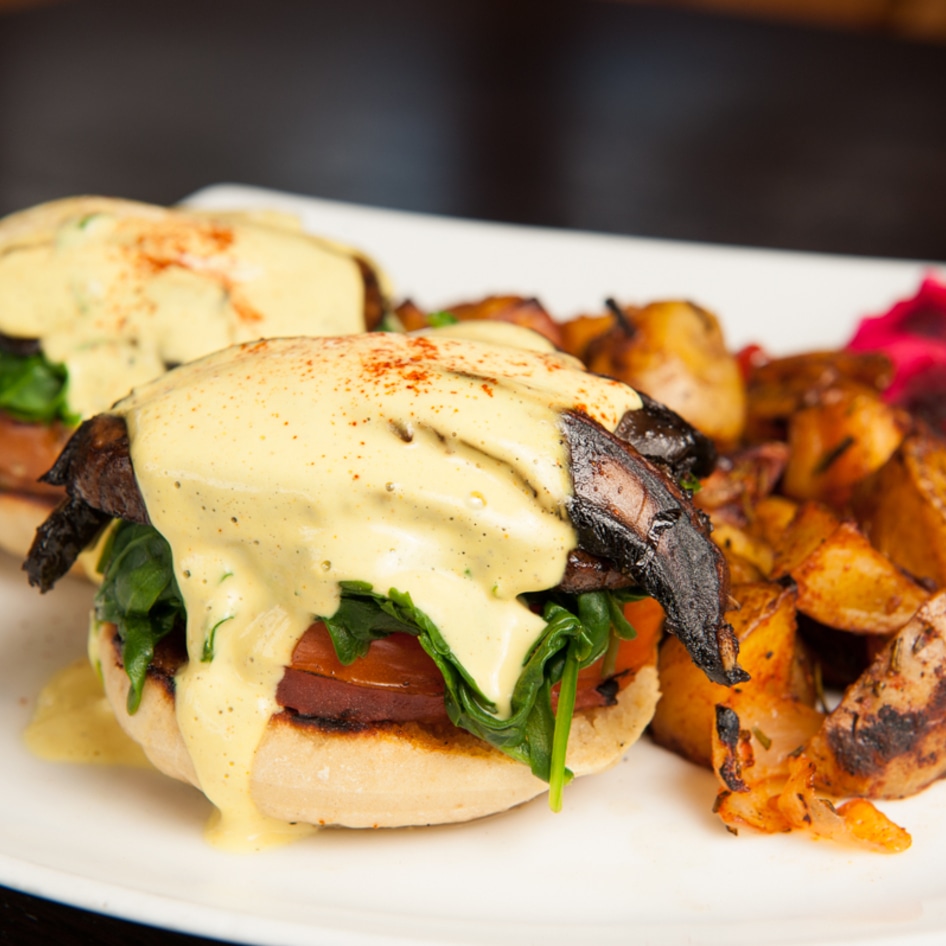During Prohibition, The Duck Inn Supper Club invited customers to duck in for a quick drink as long as they promised to “speak easy.” Over decades, The Duck Inn’s open-arms approach established a treasured community gathering space in Delavan, WI. In the mid-1990s, Jeff Karbash purchased the historic property to restore it back to its supper club glory days.
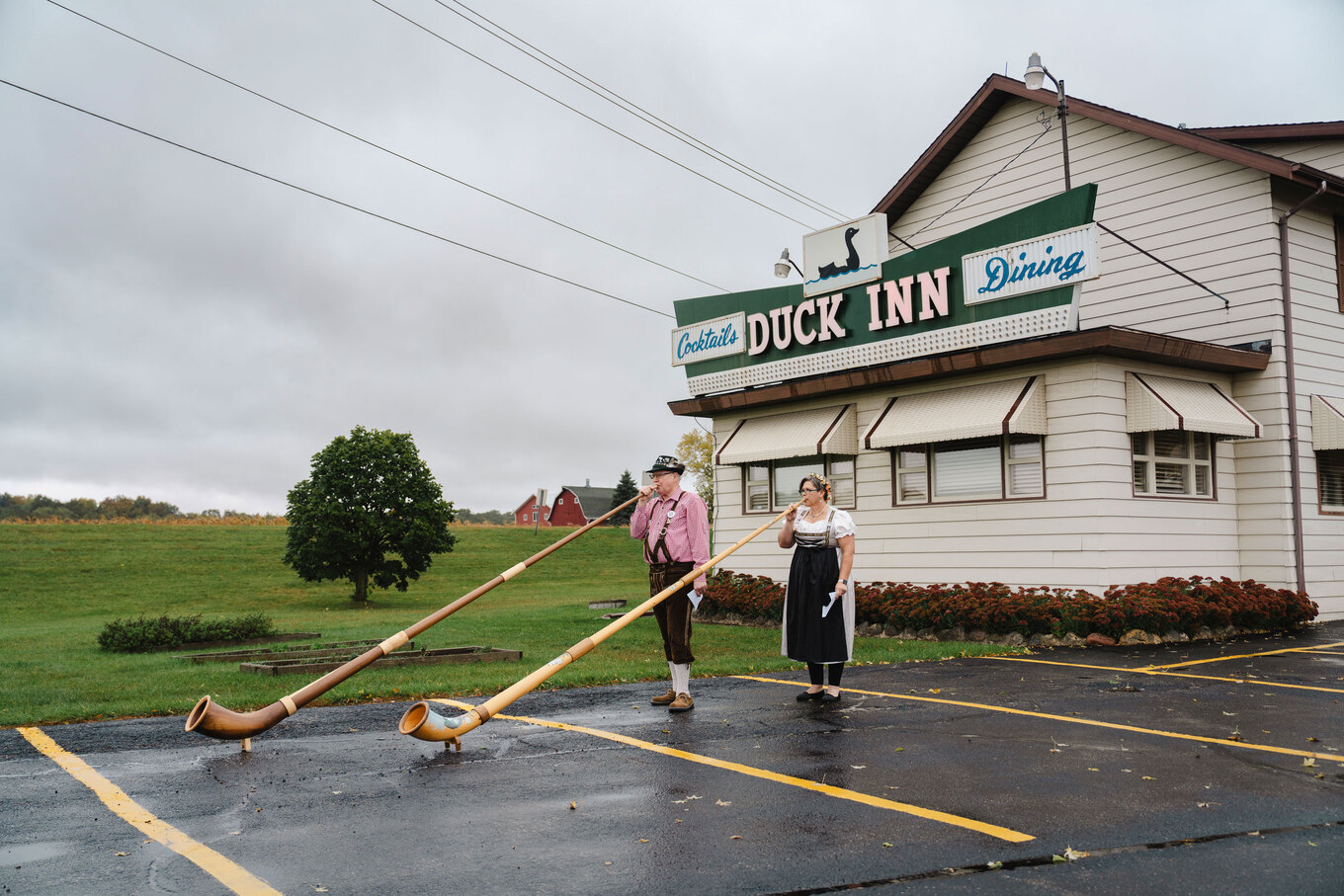 Oatly
Oatly
The menu? It’s what you would expect from an eatery in the middle of America’s Dairyland—heavy on the duck and dairy in time-honored dishes its customers are accustomed to.
So what would happen if some of these dishes got a dairy-free makeover? That’s what vegan company Oatly wanted to find out when it ventured to The Duck Inn for its Will It Swap? mini-documentary series.
From Oatly-infused grasshoppers and crème brûlées to oat milk-based clam chowders and pastas, The Duck Inn became a ground for testing the adaptability of plant-based alternatives in a region deeply rooted in dairy traditions.
“When we were planning this next installment of Will It Swap?, we felt it was time to finally bring the series to the Dairy State,” Jeremy Elias, Head of Global Content at Oatly, tells VegNews. “There was a long list of Wisconsin sites and venues we were considering, but ultimately, the long-standing history of Wisconsin supper clubs was too much to resist.”
The Duck Inn goes dairy-free with Oatly
This strategic choice was not just about testing a product but also about engaging with and understanding a community deeply intertwined with dairy culture. “The Duck Inn, and the hospitality of owner Jeff Karbash, his staff, and his devoted customers, enabled us to tap into local dairy culture, the sense of community within Delavan, and a lot more,” Elias says. “The Duck Inn, with its rich local dairy culture and community spirit, was the perfect venue for this experiment.”
So, what did everyone think?
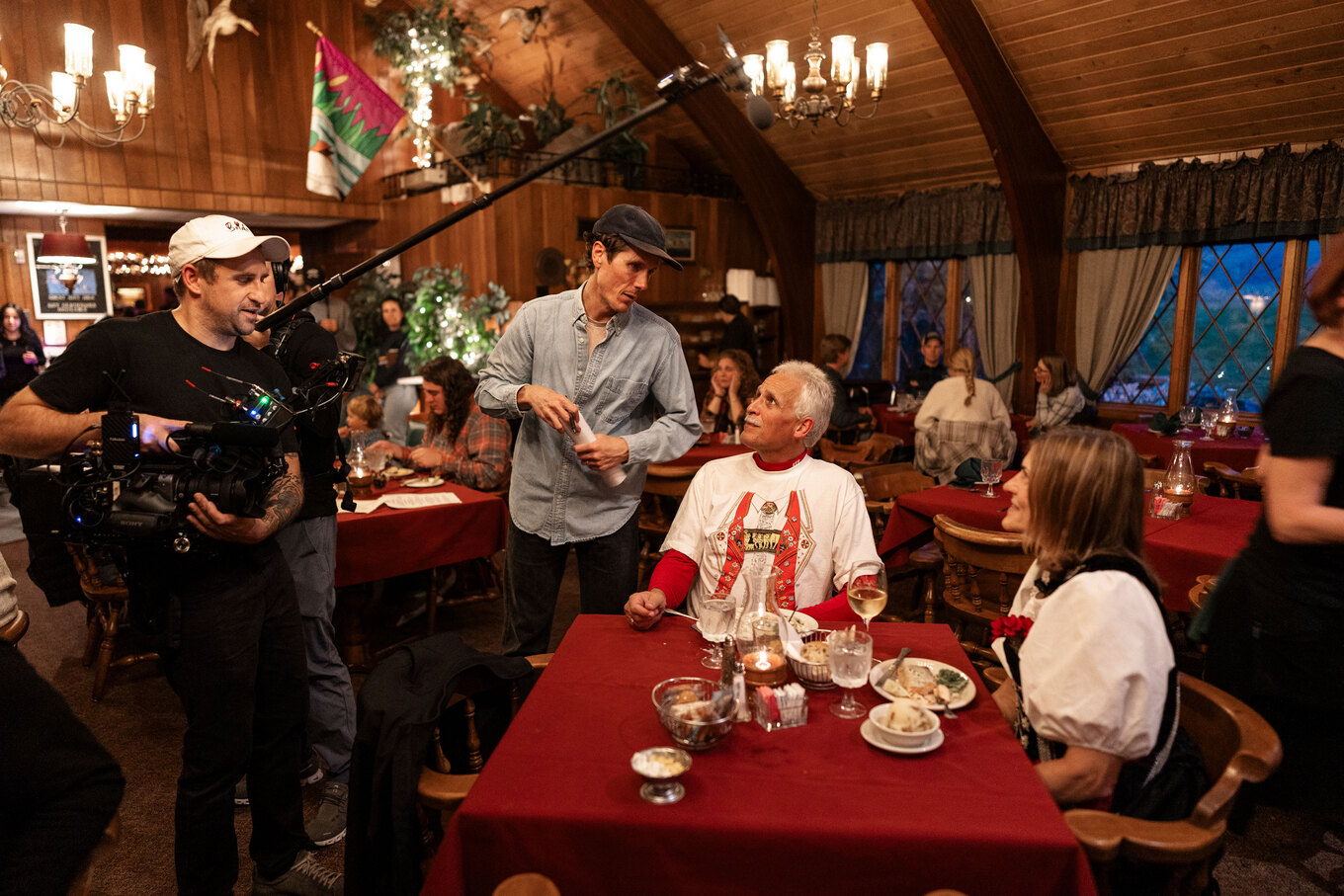
Oatly
While some were skeptical at first, many were surprised at the creaminess of Oatly’s products, particularly as part of its grasshopper—a boozy beverage that is piled high with a tower of ice cream.
“I don’t know if I had expectations or if I was more apprehensive about how the Oatly product would perform,” Karbash tells VegNews. “I was concerned about it breaking down real easily in the finished dishes, but when we were actually using the Oatly products, it was the opposite for us and held together well.”
“It actually held together better than dairy in the ice cream drinks made with liquor in particular. It did surprise me,” Karbash says.
During the episode, patrons charmingly said the phrase “very good” so many times that Oatly added a counter to emphasize their enjoyment of the dairy-free swaps. Oatly, which originates from Malmö, Sweden, even impressed The Duck Inn’s Swedish-born customer Ronnie.
“I think everybody had a fun night with it and was willing to give it a try,” Karbash says. “Our patrons who are lactose intolerant, vegetarian, or vegan, were really pleased to be introduced to the product, and those patrons who usually stick to dairy were surprised that it was actually good.”
Oatly is known for its bold marketing moves and, Elias explains, that the company was prepared for a spectrum of reactions, both positive and negative.
“Filming an episode of Will It Swap? in the dairy capital of America may seem like a setup for failure, and we were fully prepared for that, but ultimately, the recipes and reactions from diners were wildly successful,” Elias says.
“People were just curious to see what an oat-based grasshopper, or crème brûlée, may taste like,” Elias says.
Plant-based milk makes strides
This visit to The Duck Inn comes at a time of significant change in the dairy industry. With declining fluid milk sales in the United States and a booming plant-based milk sector, consumer preferences are shifting. Factors such as health awareness, environmental sustainability, and ethical considerations are drivers of growth for the plant-based milk industry, which is poised to reach $30 billion by 2030.
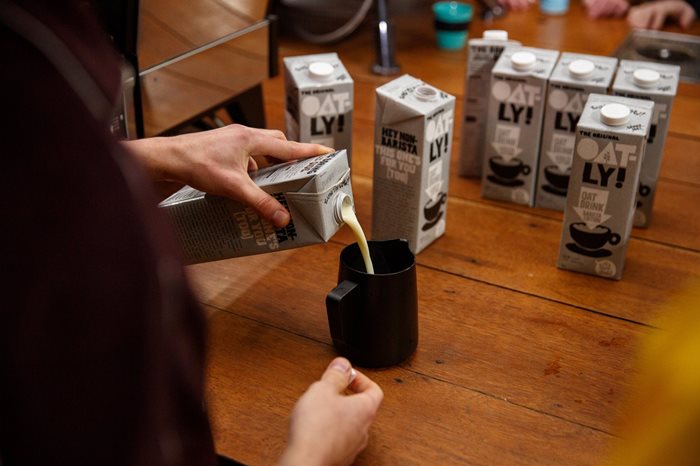 Oatly
Oatly
Younger generations are at the forefront of this shift, opting for food choices that align with their values of sustainability, health, and ethics. Big Dairy is addressing this shift with attempts to lure consumers back to dairy, its latest being a campaign with music legend Queen Latifah.
However, studies continue to uncover the environmental impact of cow’s milk in comparison to plant-based, increasingly influencing consumer choices, with plant-based options emerging as more sustainable, requiring fewer resources and resulting in lower greenhouse gas emissions.
Oatly’s Will It Swap series is a way to showcase the potential of oat milk to curious consumers, meeting them where they are—typically at a place where dairy has been the norm.
“The series has taken us on a journey from a retired correction officer’s home in Brooklyn, to a Louisiana diner, to a supper club in America’s Dairyland so far,” Elias says.
“Who knows where we’ll go next, but you can bet we’ll continue to seek out places that put our products to the test so we can (hopefully) continue to showcase just how seamlessly Oatly swaps for its traditional cow’s dairy counterparts,” he says.
On the ground at The Duck Inn, the Oatly experiment has already shown Karbash the potential of integrating oat milk into his menu in ways that serve existing customers and attract new guests, opening a new door for the long-standing business.
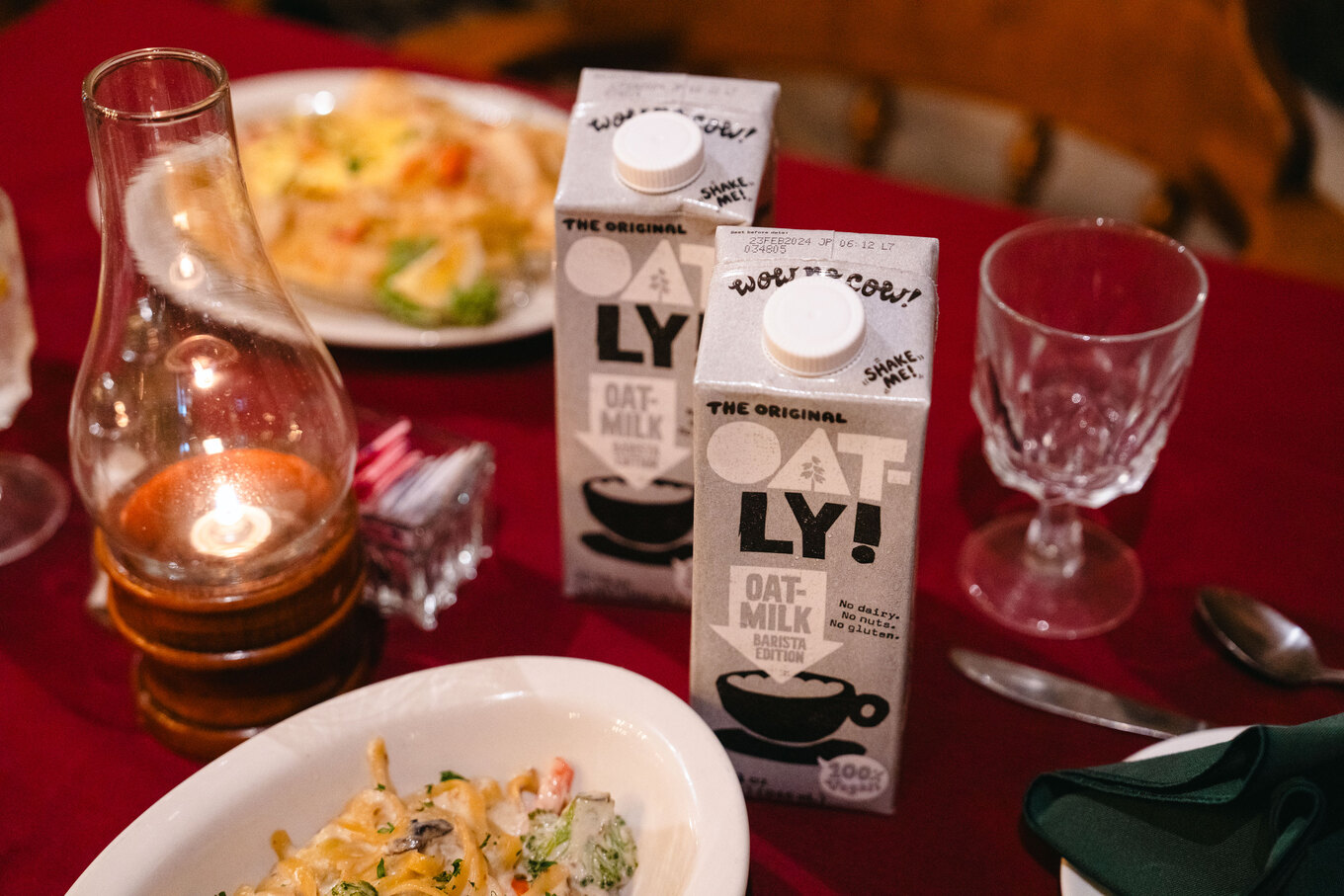 Oatly
Oatly
“After seeing some of our patrons who have certain intolerances, like dairy allergies, delight in being able to enjoy dishes that they normally can’t eat, I could see us having some Oatly frozen product on hand for these customers moving forward,” Karbash says.
“I could also see us incorporating Oatly product into a dairy-free featured entrée this summer during our tourist season when we cater to lots of different people visiting Delavan,” he says.
For the latest vegan news, read:
JUMP TO ... Latest News | Recipes | Guides | Health | Shop




